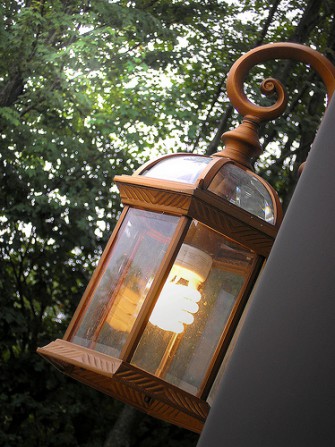Energy Saving Tips for Renters
 As consumers grow more energy-conscious, and environmental advocates push for greater awareness, there is no shortage of suggestions for new ways to cut energy bills and help the planet in the process. The cost-savers can be great for homeowners — but what about renters? It turns out that many leases prevent tenants from making changes that could lead to substantial energy savings. For example, blocking drafts with caulking or foam sealant could be considered an illegal alteration or improvement in most leases. So might installing a programmable thermostat. What’s more, tenants aren’t necessarily motivated to be energy-efficient. Some aren’t responsible for paying their own heating bills, and are therefore less conscientious. Others have small apartments, so even if they install insulation — which can reduce heating costs by up to 20% — they may not see any difference in the bills.
As consumers grow more energy-conscious, and environmental advocates push for greater awareness, there is no shortage of suggestions for new ways to cut energy bills and help the planet in the process. The cost-savers can be great for homeowners — but what about renters? It turns out that many leases prevent tenants from making changes that could lead to substantial energy savings. For example, blocking drafts with caulking or foam sealant could be considered an illegal alteration or improvement in most leases. So might installing a programmable thermostat. What’s more, tenants aren’t necessarily motivated to be energy-efficient. Some aren’t responsible for paying their own heating bills, and are therefore less conscientious. Others have small apartments, so even if they install insulation — which can reduce heating costs by up to 20% — they may not see any difference in the bills.
No Permission Needed
If saving money is your main concern, start by taking small, simple steps to cut your electricity bill, like replacing incandescent lights with compact fluorescent or halogen bulbs and unplugging electronics when they’re not in use, or plugging them into a power strip that you can easily turn off. Some power strips now come with remote controls. Even assuming your landlord is responsible for providing the refrigerator and other major appliances, you can still look for Energy Star-certified products when shopping for home electronics. Products like TVs, DVD players, computers and cable boxes now come with Energy Star ratings.Buying an LCD television instead of a plasma screen will also save electricity. Install heavy drapes and close them at night. That can help block cold air that seeps in from your windows, making you more comfortable and potentially saving on heating costs.
Ask Before Doing
Closing up drafts with caulking or foam sealant, or putting plastic film over your windows to keep heat in may seem noninvasive. But in a standard lease, both would be prohibited. One solution: See if your landlord would be willing to share the cost with you. Caulk and foam sealant are eligible for federal tax credits so you could offer to do the work and let your landlord take that credit. Whoever pays the heating bills will see some savings, and you’ll feel more comfortable.
Negotiating Necessary
It could be worth your while to talk to your landlord about bigger improvements. The biggest electricity user in your apartment is your refrigerator. You’ll save on your electric bill if you can persuade your landlord to replace an old fridge with a new Energy Star model, even if you have to share the cost of the new appliance. If you already have an Energy Star-compliant fridge or other appliance in your apartment and it needs to be replaced, your landlord must replace it with something that meets the same standard. If your apartment is drafty and windows need to be replaced, raise the issue with your landlord.
